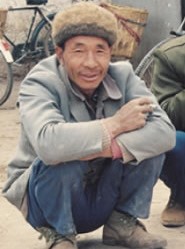Miguba in China

Photo Source:
Copyrighted © 2026
Operation China, Asia Harvest All rights reserved. Used with permission |
Send Joshua Project a map of this people group.
|
| People Name: | Miguba |
| Country: | China |
| 10/40 Window: | Yes |
| Population: | 90 |
| World Population: | 90 |
| Primary Language: | Adi |
| Primary Religion: | Ethnic Religions |
| Christian Adherents: | 0.00 % |
| Evangelicals: | 0.00 % |
| Scripture: | Complete Bible |
| Ministry Resources: | Yes |
| Jesus Film: | Yes |
| Audio Recordings: | Yes |
| People Cluster: | South Asia Tribal - other |
| Affinity Bloc: | South Asian Peoples |
| Progress Level: |
|
Identity
The Miguba ethnic group was only recently discovered. They may have been officially counted as part of the small Lhoba nationality by the Chinese authorities. The Miguba share linguistic similarities with the Bogar and Yidu, two tribes combined by the Chinese to form the Lhoba minority.
History
According to Miguba mythology, Abo Tani was the first human. They say they migrated across the Himalayas to their present location from a place named Padong-Among, which means "land of rain." Child marriages were prevalent in the past, but today most Miguba marry when they are 15 to 17 years of age.
Customs
In the past, the Miguba wore hats made of cane. The men still wear a long coat and a langoti (loincloth). The Miguba love to eat meat, especially deer, tiger, pork, and chicken. Their diet is supplemented by vegetables and fruit such as jackfruit, bananas, pineapples, guavas, and oranges. Premarital sexual relations are not only allowed by the Miguba but are encouraged. A boy's hut called bango and a girl's hut called rasheng are located in their village. Girls are not allowed to enter the bango, but boys are permitted to spend a night with a girl of their choice in the rasheng.
Religion
The Miguba live in constant fear of demons and the spirit world. Numerous aspects of their lives reflect their bondage. Before a woman gives birth, "pre-delivery rituals are observed to avoid future complications, but in case of certain problems a ritual becomes a must to ward off evil spirits. The nature of animal sacrifice in the ritual depends upon the financial condition of the person concerned, as well as on the severity of the case. A name is given to the baby immediately after birth, either by the family or relatives, in order to save the baby from the clutches of evil spirits." Some Miguba outwardly profess to be Buddhists, but this is done only to please the Tibetans.
Christianity
The whole region of southeast Tibet is somewhat of a mystery to outsiders. Few people have ever traveled to the area inhabited by the Miguba. The gospel has also failed to enter the thick forests and deep valleys of the northern Himalayas. There are no known Christians in the area to impact the Miguba, who have yet to be exposed to the gospel.